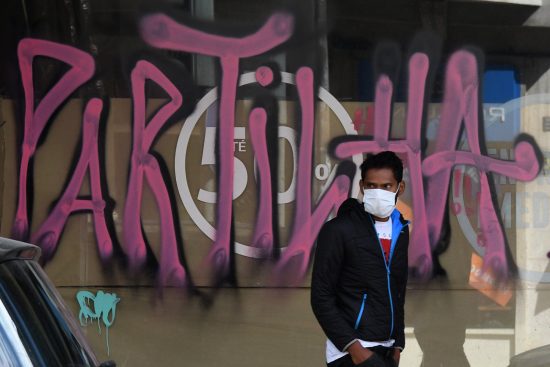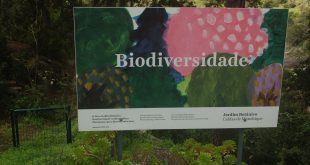Sunday, 5th April 2020
100 Years of Solitude?
Please accept this invitation from ECO123. As from today, each morning at breakfast time, you
will receive an opinion piece written by one of our correspondents. Yes, every morning at eight
o’clock, there will be a story from ECO123, published in this new format and waiting to be read
by you. Every day. Every morning, my colleagues, Dina, Alexandre, Sue, Francisco, Leila,
Sonya and I, as well as some of our independent international collaborators, will be offering
you a short story: food for the soul in these times of the Covid-19 pandemic.
I am starting my article with a question: Could there be a connection between the real carnage
caused by Covid-19 and our way of life, marked, as it is, by our exaggerated mobility within
the globalised world economy? When we were wishing one another a peaceful and healthy New
Year for 2020, no one imagined that a virus would be able to change the world so radically. In
less than three months, “this little bug” has undermined the whole world; apparently stable
societies are now on the verge of collapse, and it has become frighteningly clear that what
everyone somehow already knew, but didn’t dare admit, is that we are living in worlds that act
globally but are simultaneously in cognitive dissonance, absolutely dependent on
interconnected worldwide chains of production, value chains, supply chains, chains of
responsibilities and information, in which we and our products travel by plane from anywhere
to everywhere. From one moment to the next, what I’ve chosen to call the house of cards of
the current world economy in my stories, is collapsing and dragging us down with it. Rien ne
va plus.
Faced with this, I offer you instead the resilient model for an active economy at a local and
regional level. Money stays in the village: it stays with the baker, with the farmer, in the
market and at the olive press. This is how we live here in Monchique and in many other
villages in this world. Why did we change that?
People leave their villages and go to the city. That’s where they find work, but where they also
feel a sense of alienation from themselves. Maintaining traditions ceases to have any value.
Everything is different and yet everything is so close to us. One day, we’re in New Zealand, or
Bangkok, the next day, we pop down to the Algarve. In this globalised world, the village
ceases to exist. Each action can be transformed, from one moment to the next, into a global
danger. In fact, the pandemic has made each of us a potential transmitter of a deadly virus.
We are the threat, and simultaneously we are threatened. We go from city to city and spread
the virus, taking it from the Rio Carnival to an international football match in Bergamo, and to
Ischgl to go skiing. We are always partying! The virus is a faithful and invisible companion in
this epidemic of mistrust; first, it destroys common sense, then it attacks our capacity for
perception and cognition. In the end, no one can tell what is real and what isn’t, or correctly
assess the risks.

Stop! Let’s rewind the film. Let’s start the year once again. What would it have been like if the
President or the Prime Minister had decreed that this “nonsense” stop, ordering us to be
confined, forcing us to stay at home without using a car any more, to stop travelling by plane
or going to football matches, using the climate crisis and the huge man-made CO2 emissions to
justify their decision? I think that this confinement is an opportunity. I propose that we use the
time that we now have to reflect on more sustainable ways of living, working and managing
our time in the near future. Everything would end up having a deeper meaning.
Happy Easter
 Eco123 Revista da Economia e Ecologia
Eco123 Revista da Economia e Ecologia


